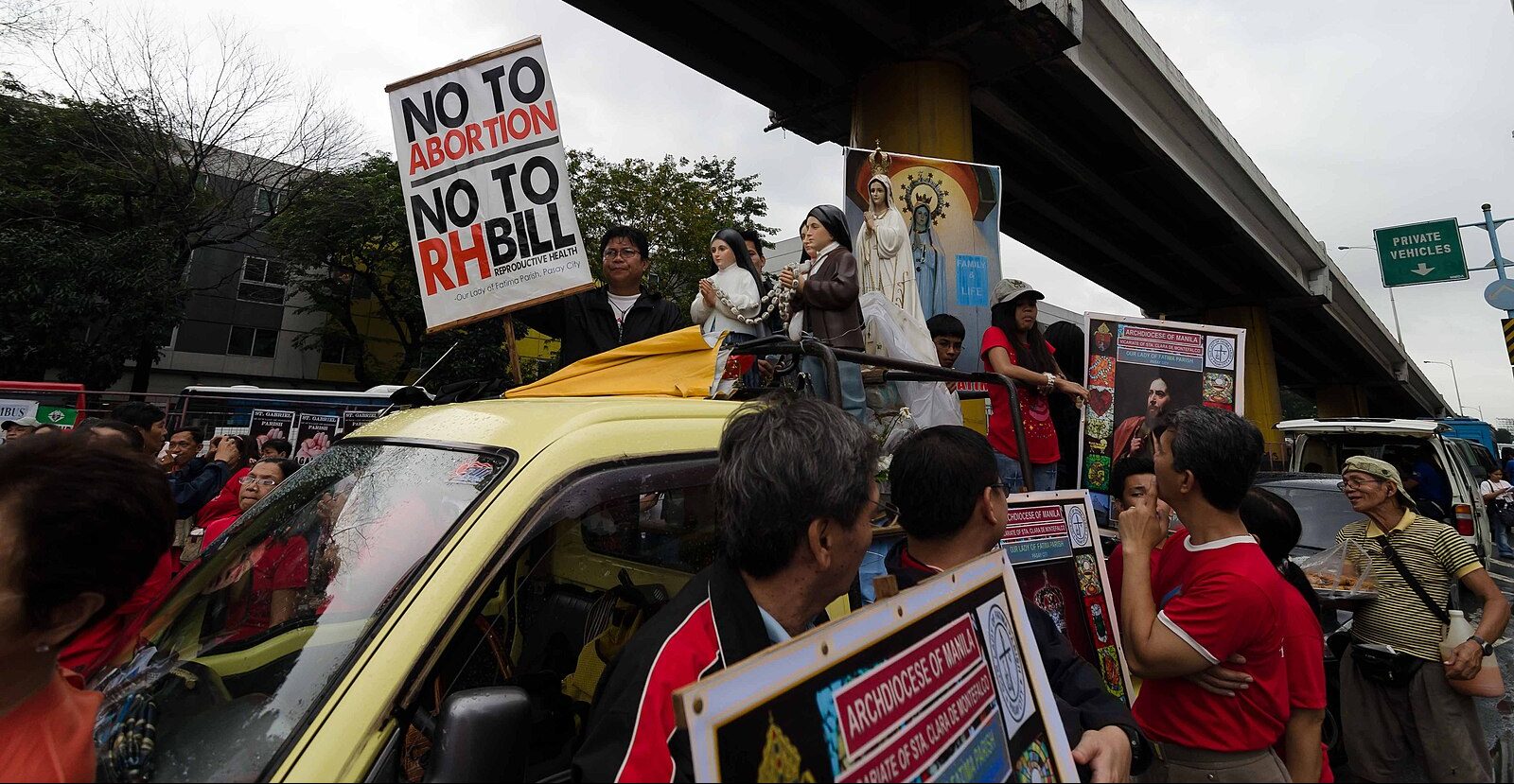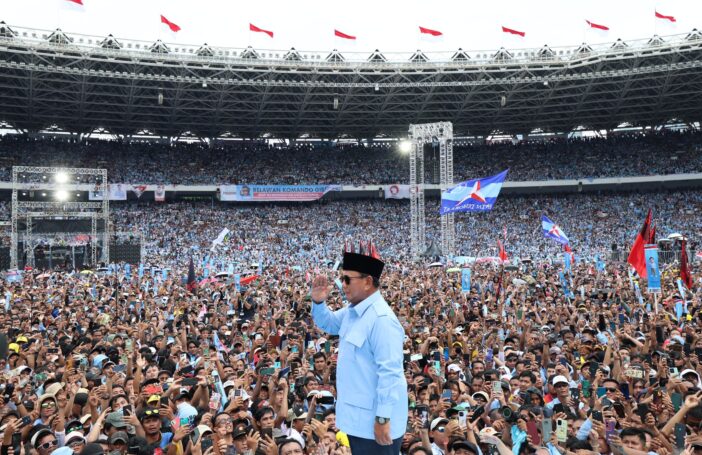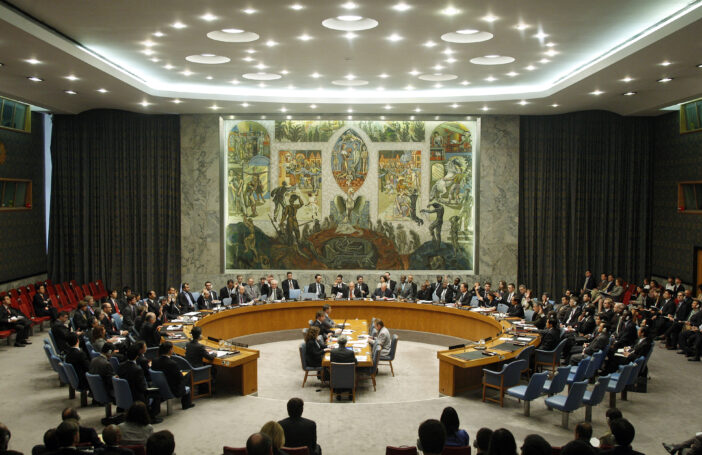This year marks the biggest election year in global history, with over 60 countries going to the polls, including 17 within the Asia-Pacific region. At the same time, we are witnessing a global democratic decline with more than 40% of the world’s population now living under authoritarian rule. As governments and other actors shift further to the right, defending and promoting sexual and reproductive health and rights —and human rights more broadly — is now more important than ever.
A transnational anti-rights movement is gaining further political, social, and economic legitimacy. Historically targeting abortion rights, various coalitions of nationalist, religious, and ultra-conservative actors and organisations have become emboldened to attack gender equality and sexuality more broadly, in pursuit of a regressive social and political agenda. Recent setbacks in Africa, Europe, and the possibility of another Trump administration in the US – along with the Project 2025 agenda – raise grave concerns for the future of reproductive and LGBTQIA+ rights around the world.
In recent years, we have witnessed devastating rollbacks on reproductive rights, perhaps most notably in the 2022 reversal of Roe v. Wade, which since 1973 had established that the right to abortion was protected by the US constitution. At the time of Roe v. Wade’s fall, the International Planned Parenthood Federation (IPPF) and MSI Asia Pacific penned a joint blog, warning of the implications of US abortion policies globally, particularly within the Asia-Pacific region, where abortion rights have been hard-won and fervently contested.
Two years on, we are witnessing well-coordinated attacks from networks of non-state and state actors attempting to blockade access to safe abortion care. Filipino advocates for the decriminalisation of abortion are being met with hurdles at every turn. The Philippines Commission on Human Rights is backsliding on its support for abortion rights after being threatened with defunding by anti-abortion members of the Philippines congress, who are bolstered by the Roman Catholic Church.
Anti-abortion attacks in the Philippines are being funded in part by groups such as Human Life International, a US-based Catholic apostolate organisation that conducts “legal activism” in the Philippines by collaborating with ultra-right bishops and legislators against reproductive rights. Likewise, despite the Constitutional Court of South Korea ruling three years ago that criminalising abortion up to 22 weeks was unconstitutional, a lower court recently rejected an appeal to re-instate access to the website of the online medical abortion provider, Women on Web. There is still no legal basis in South Korea to support the court’s ruling, leaving health providers, judicial leaders, policy makers, and the public unclear about how, when, and where an abortion can be obtained.
While the politicisation and criminalisation of women’s and girls’ bodies has been a political mainstay for centuries, the fight has now moved beyond abortion alone. So-called “pro-family” and ultra-conservative religious groups like Human Life International are mobilising across Africa, Latin America, the Asia-Pacific, Europe, and the US. One study by Open Democracy found that around US$280 million in “dark money” was spent by US Christian Right groups globally to roll back sexual and reproductive rights from 2008 to 2020, some of which can be linked to the Trump administration, including efforts to blockade the delivery of comprehensive sexuality education to young people.
To gain political power and legitimacy, these actors typically operate behind a smokescreen of “development” and human rights-based language, which falsely likens comprehensive sexuality education, along with other elements of sexual and reproductive health and LGBTQIA+ freedoms, to Western colonialist ideals and attempts to assert control over countries in the Global South. This includes the censoring of sexual and reproductive health service information online and using digital platforms as battlegrounds to propagate harmful disinformation. Among those most affected by these rollbacks are trans and non-binary people who are often the targets of hate campaigns that stir up moral panic around the “radical gender ideology” poised to dismantle traditional family values, gender roles and social structures.
Since the 2022 ruling on Roe v. Wade, we have also increasingly seen large-scale attacks on the rights of LGBTQIA+ communities. Just last year, Uganda signed one of the world’s harshest anti-LGBTQIA+ laws, which includes enforcement of the death penalty for so-called “aggravated homosexuality”. Closer to home, in Indonesia a new criminal code was introduced in 2022 outlawing sex outside of marriage. As Human Rights Watch reports, the bill is a clear violation of international human rights law and privacy standards, presenting serious implications for women, girls, and religious minorities, along with LGBTQIA+ people, given that same-sex conduct is already illegal in the country. These impacts are also being felt within the wider community, with broad-scale attacks, harassment and death threats from government officials, religious conservatives and anti-LGBTQIA+ hate groups forcing some LGBTQIA+ organisations underground.
What does this mean for Australia’s foreign policy engagement? Australia is an active contributor within multilateral spaces and high-level global forums, including the UN Commission on the Status of Women, the Human Rights Council, and the Commission on Population and Development. However, these spaces remain highly contested and are being co-opted by anti-rights actors to erode support and attack long-standing international commitments on sexual and reproductive health and rights and LGBTQIA+ rights.
Australia – along with likeminded country allies – must therefore take bold, consistent, and affirmative action to protect and advance sexual and reproductive rights, LGBTQIA+ rights and human rights more broadly, upon which the foundations of democracy are tested. With the US and much of Europe – traditionally considered to be “champions” – potentially out of commission after recent or upcoming elections, Australia might be one of the last remaining advocates standing to defend rights. Alliance building with likeminded countries from the Global South such as South Africa and Mexico will be paramount.
Australia must continue to defend normative language related to sexual and reproductive health and rights, gender and sexuality within global mandates and resolutions, countering efforts to undermine these human rights. This should include breaking down siloes and leveraging the expertise of human rights and feminist organisations to advance shared priorities within global and regional dialogues, along with national policy and legislative frameworks.
The Australian aid program’s forthcoming Gender Equality Strategy and Human Rights Engagement Strategy for LGBTQIA+ equality and inclusion are opportunities to further establish the foundation for Australia’s foreign policy engagement. There has been a seeming reluctance to adopt a Feminist Foreign Policy – or at least a foreign policy explicitly described in these terms – but applying these principles would better affirm Australia’s stance in multilateral and bilateral strategic engagements and set the tone for the aid program more broadly. As a self-proclaimed “great and enduring democracy”, now is the time for Australia to step up.





It is wonderful to see the pushback on destructive liberal policies that have torn the heart out of the traditional family and of time-honored laws that honour natural law. We already see society teetering on the abyss without your call for further liberation.
I will oppose your agenda of destruction with all my might.
Sincerely,
Chris O’Brien